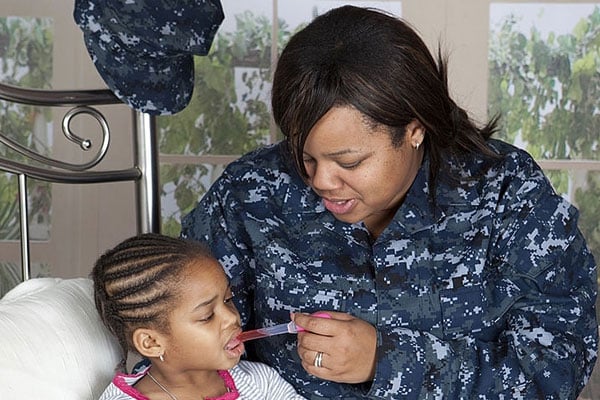Medicines you should not give to your baby

What you need to know:
Tips for parents
●Store medications in a place that is too high for young children to reach or see.
●Do not leave medicines out after using them (such as at a sick child’s bedside).
●Never leave children alone with medicines. If you are giving or taking medicine and you have to do something else, such as answer the phone, take the medicine with you.
●Never tell children that medicine is candy so they will take it.
●Remind babysitters, houseguests, and visitors to keep purses, bags, or coats that have medicines in them out of children’s reach and sight.
hen a baby gets sick, it is important for the parent or caretaker to take the child to the hospital for a thorough evaluation by a doctor or paediatrician. Dr Boniface Ssegujja Otto, a paediatrician, says this is because a number of medications that are often prescribed for common childhood illnesses may cause an undesirable or, sometimes, fatal outcome.
“Unfortunately, due to easy access to and inadequately controlled over-the-counter prescription drugs, our children remain exposed to these medications,” he says.
Cold and cough medicine
Children younger than two years of age should not be treated with over-the-counter cough and cold medicine unless specifically directed by a paediatrician. “This medication is likely to cause increased heart rate, respiratory depression and convulsions, which can all lead to loss of life,” Dr Ssegujja says.
Aspirin
There is a strong link between aspirin and a potentially fatal neurological disorder called Reye’s syndrome, especially in children under the age of 18 years. Dr Godfrey Bbosa, from the department of Pharmacology and Therapeutics at the College of Health Science, says : “Aspirin will cause the child’s liver and brain to swell, a common occurrence when children who have suffered from a viral infection such as flu are given aspirin,” he says. The child will start feeling extremely tired, have nausea and if not quickly taken to hospital, they could go into a coma.
Ibuprofen
While it is known to help one feel better in case of a cold, babies younger than six months should never be given this medicine. “This is because of the increased risk of reduced blood flow to the kidneys that may affect kidney function in future,” Dr Ssegujja explains.
Anti-vomiting nausea medicine
Nausea and vomiting are common among children but it is usually for a short period of time that resorting to medication for it would not be ideal. Moreover, Dr Ssegujja says, there are many potential side effects that may leave the child with long term neurological disability. “The younger the child, the higher the risk of occurrence,” he emphasises.
Nasal drops
These are not recommended for children under six years of age since they dry out the nasal passages. “Rather, a snot sucker is preferred. While the baby will not appreciate the sucking, it will ease their breathing,” Dr Agnes Anyait, a general practitioner, shares.
Chewable medicine
While these are usually sweet and a parent or caretaker may think they are okay for a toddler, Dr Anyait says they can easily choke the child.
“Choking is common among children below three years of age. Even when they can chew, it is better that you crush the medicine and mix it with some water before giving it to them,” Dr Anyait advises.
Expired medicine
It may seem bizarre that one would give their child expired medicine but unfortunately, this happens. Dr Anyait says in a frantic moment, with a pile of medication in your medicine cabinet, it is possible to give your toddler expired medicine.
“Before you administer any medicine to your child, check the expiry date and even when you cannot find it, look out for discolouration or anything else that is out of the ordinary such as smell,” she says, adding that a parent should regularly examine all medication in their cabinet to get rid of those that are expired.
As a general recommendation, Dr Ssegujja says all babies three months old or younger should not be given medication without consulting a doctor first.
Caution
Dr Anyait adds that mothers with breastfeeding children should also avoid taking strong medication.
“While many mothers will choose the health of their babies over theirs, in some instances, it is beyond their control. For example, if a mother has been diagnosed with a disease that requires treatment, such as cancer, they need to work with their doctor and the child’s paediatrician to find a better way of feeding the child,” she concludes.





